3356294 results
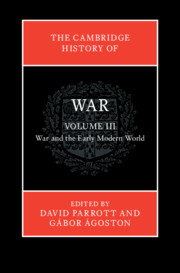
The Cambridge History of War
- Coming soon
-
- Expected online publication date:
- July 2025
- Print publication:
- 31 July 2025
-
- Book
- Export citation
Satellite Radar Interferometry
- Theory and Practice
- Coming soon
-
- Expected online publication date:
- July 2025
- Print publication:
- 31 July 2025
-
- Book
- Export citation
Vico and the Maker's Knowledge Tradition
- Praxis and History
- Coming soon
-
- Expected online publication date:
- July 2025
- Print publication:
- 31 July 2025
-
- Book
- Export citation
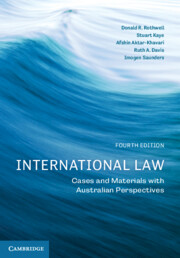
International Law
- Cases and Materials with Australian Perspectives
- Coming soon
-
- Expected online publication date:
- July 2025
- Print publication:
- 31 July 2025
-
- Textbook
- Export citation
Kant's Metaphysics of the Will
- Freedom, Reason, and the Moral Law
- Coming soon
-
- Expected online publication date:
- July 2025
- Print publication:
- 31 July 2025
-
- Book
- Export citation
Galen on Human Physiology
- Taking the Body Apart and Putting it Back Together Again
- Coming soon
-
- Expected online publication date:
- July 2025
- Print publication:
- 31 July 2025
-
- Book
- Export citation
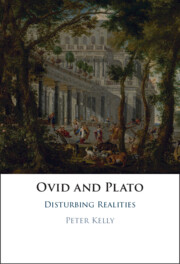
Ovid and Plato
- Disturbing Realities
- Coming soon
-
- Expected online publication date:
- July 2025
- Print publication:
- 31 July 2025
-
- Book
- Export citation
Kierkegaard's ‘Works of Love'
- A Critical Guide
- Coming soon
-
- Expected online publication date:
- July 2025
- Print publication:
- 31 July 2025
-
- Book
- Export citation
Connected Cartographies
- World Geography and the Sino-Western Translation of Knowledge, 1580-1842
- Coming soon
-
- Expected online publication date:
- July 2025
- Print publication:
- 31 July 2025
-
- Book
- Export citation
The Birth of Democracy in South America
- Coming soon
-
- Expected online publication date:
- July 2025
- Print publication:
- 31 July 2025
-
- Book
- Export citation
Landscapes of Genius and the Transatlantic Origins of Environmentalism
- Nineteenth-Century British and American Literary Cultures of Nature
- Coming soon
-
- Expected online publication date:
- July 2025
- Print publication:
- 31 July 2025
-
- Book
- Export citation
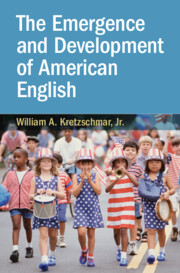
The Emergence and Development of American English
- Coming soon
-
- Expected online publication date:
- July 2025
- Print publication:
- 31 July 2025
-
- Book
- Export citation
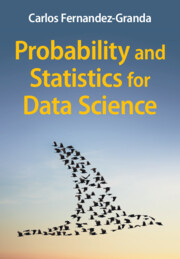
Probability and Statistics for Data Science
- Coming soon
-
- Expected online publication date:
- July 2025
- Print publication:
- 31 July 2025
-
- Book
- Export citation
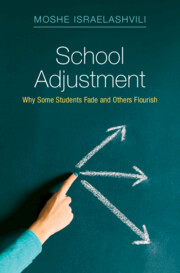
School Adjustment
- Why Some Students Fade and Others Flourish
- Coming soon
-
- Expected online publication date:
- July 2025
- Print publication:
- 31 July 2025
-
- Book
- Export citation
Kant and Stoic Ethics
- Coming soon
-
- Expected online publication date:
- July 2025
- Print publication:
- 31 July 2025
-
- Book
- Export citation
Spinning the World
- The Public Relations Industry and American Foreign Relations
- Coming soon
-
- Expected online publication date:
- July 2025
- Print publication:
- 31 July 2025
-
- Book
- Export citation
The Cambridge Companion to Global Rap
- Coming soon
-
- Expected online publication date:
- July 2025
- Print publication:
- 31 July 2025
-
- Book
- Export citation
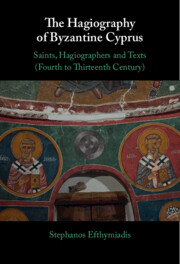
The Hagiography of Byzantine Cyprus
- Saints, Hagiographers and Texts (Fourth to Thirteenth Century)
- Coming soon
-
- Expected online publication date:
- July 2025
- Print publication:
- 31 July 2025
-
- Book
- Export citation
Ability and Difference in Early Modern China
- A Mongol Family at the Ming Court
- Coming soon
-
- Expected online publication date:
- July 2025
- Print publication:
- 31 July 2025
-
- Book
- Export citation
A Lesson on Race
- The Bible and the Morant Bay Rebellion in the Atlantic World
- Coming soon
-
- Expected online publication date:
- July 2025
- Print publication:
- 31 July 2025
-
- Book
- Export citation

